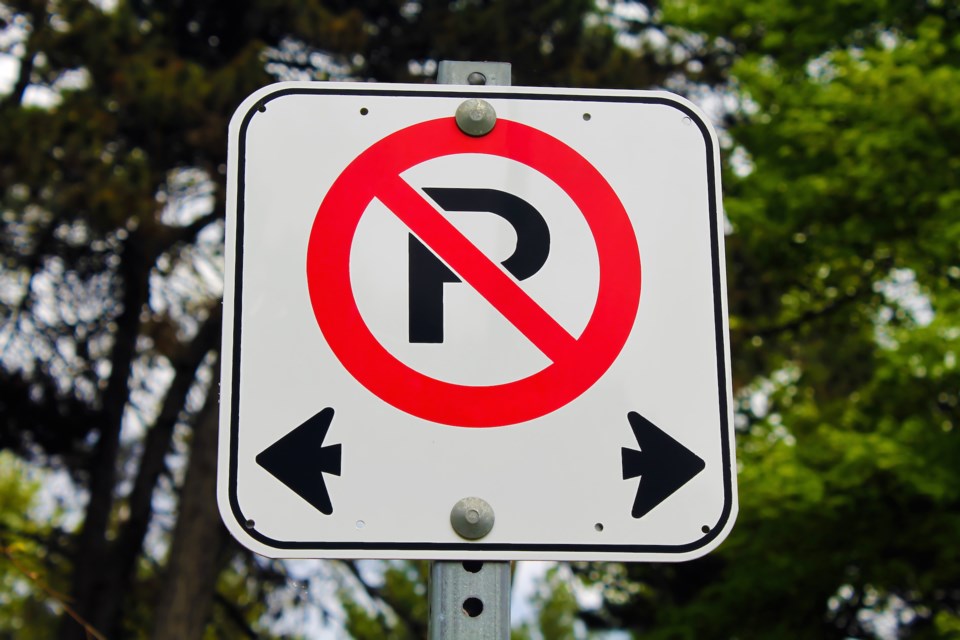As you may have heard, Guelph has some parking problems.
It was almost a year ago that there started to be rumblings about bylaw officers with itching ticket-writing fingers being on the look out for unregulated driveways and driveway usage. It was the issue that launched a lot of shares on social media, and two very successful town hall meetings.
Compounded by concerns about the lack of parking downtown, and the pending completion of the Wilson Street parkade, it’s at the front of mind of Guelphites that we’ve got too many cars and not enough places to put them.
Again, this is not news, but the issue came up again at this week’s planning meeting of council with a proposed development on Speedvale Avenue East. The proposal features an apartment complex with 21 units and a single-detached structure converted into three units for a total of 24.
The hitch is that the developers are only asking for 25 total parking spaces.
Now the developer isn’t purposefully trying to skimp on parking for more units. In fact, easy access to alternative transportation and having a location in a walkable section of the city is one of the selling points. In other words, if you live here, a this address, why do even need a car?
If nothing else, you have to admire the ambition. The project’s architect, David McAuley, justified his decision by citing a development he knew about in Oregon that had a total of one parking space for vehicles because everyone in this building rode a bike.
It goes to show you how forward thinking McAuley and the developers he’s working are, but the problem is that in spite of whatever ambitions Guelph has, delusional or otherwise, we are not Oregon.
I would like us to be. Believe me, I would love to see fewer cars out there. This column may be a testament to that assertion.
As a transit advocate trying to lead by example: I do not, nor have I ever, owned a car. I believe that we need to get more people out of their private automobiles, and encourage the use of transit, walking, and cycling whenever possible.
But I also understand that this is easier said than done.
Ideally, the proposed Speedvale development works as designed, and it will attract people who are car-less, or only have need for one car, but it’s worth noting that this is the same kind of thinking that’s painted some neighbourhoods in a corner when it came to the great driveway bylaw debacle.
For newer neighbourhoods with smaller driveways, the idea was that they were built with a mind that there would be more transit in the future, more liveable areas where you could walk to the store a block over rather than drive to the store on the other end of town.
This did not come to pass.
Transit has not kept pace with the growing city its supposed to service, and even though there have been positive developments coming out of the Transit Service Review, the full enacting of the proposed changes is three to five years away.
More’s the pity because the trend in urban design seems to be going for fewer parking spaces, not more. Even in spite of the odds.
An article in CltyLab last fall pointed out that in the United States there were 250 million cars and over two billion parking spaces. In Los Angeles Country alone, 14 per cent of the land is devoted exclusively to parking.
Of course the disproportion of the numbers shouldn’t be terribly surprising as many of us have, in our lives, more than one parking space: the one we use at home that’s empty all day, and the one we use at work that’s empty all night.
We also never think of the cost of parking either, and that doesn’t mean the amount you pay at the meter. A UCLA study of 12 parking structures in major American cities pegged the per space price of an above ground parking spot at $24,000, and the price of an underground space at $34,000.
You know where I got those numbers? The Fraser Institute!
Though it’s hardly a hot bed of Marxist gonzo thinking, the Fraser Institute was trying to make the point that municipalities should remove mandatory minimums for parking in new development because the land can be used better and why wouldn’t you want to direct your $24,000 or $34,000 per space fee to another expense?
The truth of the matter is that in much the same way that more roads has never alleviated traffic congestion, more parking spaces has never eliminated the need for parking.
Having said that, Guelph’s not there yet. Though we pretend we’re more high-minded than the traffic barbarians elsewhere with all their one-person automobile, we’re very far from the reality that this is a car-based town. Ask anyone that wants to get from Clair Road to Woodlawn on the bus in less than an hour.
While Mayor Cam Guthrie’s efforts to put forward a motion to encourage a less parking reliant development is laudable, the decision to drive less will only be up to the one’s driving.
The question is, is there anyone out there willing to change?
